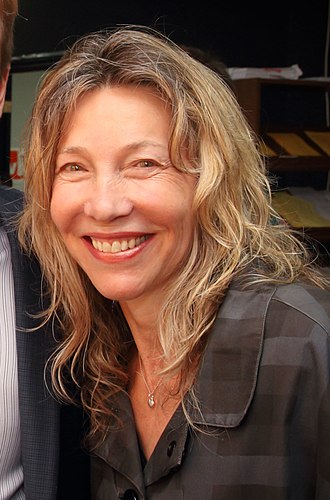1.
Even before winning its majority, Harper's Republican-styl e Conservative party - well to the right Canada's traditional Progressive Conservative Party - managed to win minority governments with less than 40 per cent of the popular vote.
Linda McQuaig
2.
High interest rates focus on the revenue of a parasitic class.
Linda McQuaig
3.
The statement, "The debt problem has become so extreme that we have no choice but to cut social spending" is presented as an objective assessment of our situation. But can you imagine a media commentator making the following assertion? "The debt problem has become so extreme that we have no choice but to raise taxes on the rich."
Linda McQuaig
4.
Anyone observing U.S. politics in recent years could easily conclude that lying about having sex is a serious offense worthy of impeachment, while lying about taking the country to war is hardly worth mentioning.
Linda McQuaig
5.
The basic issue is whether the financial elite or the government on behalf of the people should have the profit from creating money.
Linda McQuaig
6.
For society to function some kind of reasonable balance has to be stuck between the competing interests of creditors and debtors. Although the mandate of the Bank of Canada was to maintain a delicate balance between encouraging growth and fighting inflation, the Bank opted to focus exclusively on fighting inflation. In doing so it came down heavily in favour of those with financial assets to protect, and against those whose primary need was employment.
Linda McQuaig
7.
The free market is notorious for distributing resources in a highly unequal manner, with great concentrations of wealth at the top and poverty at the bottom. Our social programs, modest compared to those of many other Western countries, play an important role in redistributing some of those resources from the haves to the have-nots.
Linda McQuaig
8.
The absurdity of public-choice theory is captured by Nobel Prize-winning economist Amartya Sen in the following little scenario: "Can you direct me to the railway station?" asks the stranger. "Certainly," says the local, pointing in the opposite direction, towards the post office, "and would you post this letter for me on your way?" "Certainly," says the stranger, resolving to open it to see if it contains anything worth stealing.
Linda McQuaig
9.
A tight-money policy reinforces inequality in two ways. Its high interest rates disproportionately reward the rich, and the resulting unemployment disproportionately punishes the poor.
Linda McQuaig
10.
High interest rates focus on the revenue of a parasitic class.Historically the financial system has been structured in favour of moneyed interests, that is, creditors.
Linda McQuaig

